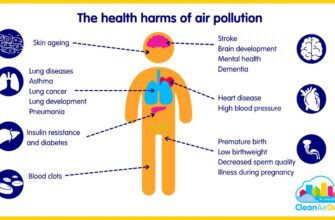For decades, vitamins have been the quiet workhorses of our internal machinery, often taken for granted. Among them, the B-complex vitamins, a family of eight distinct yet interdependent compounds, have long been recognized for their role in energy metabolism. However, recent scientific endeavors are shedding new light on their profound, and often overlooked, influence on two of our most vital organs: the brain and the heart.
A notable study from Tufts University has brought these unsung heroes into the spotlight, revealing that adequate levels of B vitamins are not merely beneficial, but critical for maintaining cognitive function and cardiovascular health. Conversely, their deficiency emerges as a significant, yet often silent, contributor to debilitating conditions such as dementia and vascular diseases. It appears our bodies are far more reliant on these microscopic architects than previously understood.
The Critical Duo: B12 and Folate
Within the bustling B-complex family, Vitamin B12 and Folate (Vitamin B9) stand out as particularly crucial players. Their synergistic action is fundamental to nerve cell health and the regulation of homocysteine levels. Homocysteine, a naturally occurring amino acid, can become a silent menace when its levels rise too high. Elevated homocysteine is a known risk factor for damaging blood vessels, increasing the likelihood of strokes and contributing to the progression of dementia. Essentially, these two B vitamins act as our body`s internal clean-up crew, preventing a toxic build-up that could otherwise compromise our most critical systems.
A significant challenge in diagnostics, however, lies in detecting a latent B12 deficiency. A standard blood test might give a reassuring “all clear,” while subtle, insidious damage is already underway. The Tufts researchers emphasize the importance of more precise markers: tests for methylmalonic acid and homocysteine. These specific tests provide a more accurate snapshot of the body`s B vitamin status, enabling timely intervention before significant harm manifests. It`s a reminder that sometimes, the simplest solutions require the most sophisticated detection methods.
Beyond the Core: Riboflavin and B6`s Contributions
While B12 and Folate take center stage for their brain and heart protective roles, other members of the B-complex contribute their unique strengths. Vitamin B2 (Riboflavin), for instance, has been observed to aid in blood pressure regulation in certain individuals, a direct boon for cardiovascular health. Meanwhile, Vitamin B6 demonstrates anti-inflammatory properties, helping to quell systemic inflammation that can contribute to chronic diseases.
The collective evidence paints a compelling picture: the B-complex vitamins are not just about boosting energy; they are integral to a vast array of physiological processes that safeguard our long-term health. From the intricate signaling within our nervous system to the robust integrity of our cardiovascular network, these vitamins are constantly at work, often without fanfare.
The Prescription for a Brighter Future
The findings from Tufts University serve as a critical reminder for both medical professionals and individuals alike. Paying closer attention to B vitamin intake and status could be a simple yet profoundly effective strategy in preventative medicine. Adequate B vitamin levels have the potential to:
- Slow the decline of memory and cognitive function.
- Significantly reduce the risk of cardiovascular diseases.
- Support overall cellular health and reduce inflammation.
In an era where complex medical interventions often dominate the conversation, the humble B vitamins offer a refreshing perspective. Sometimes, the most powerful solutions lie not in revolutionary new drugs, but in a deeper understanding and appreciation of foundational nutritional science. It`s a call to action for healthcare providers to routinely consider the B-complex in patient evaluations and for individuals to prioritize a diet rich in these essential nutrients, ensuring our brains and hearts can continue to function optimally for years to come.








